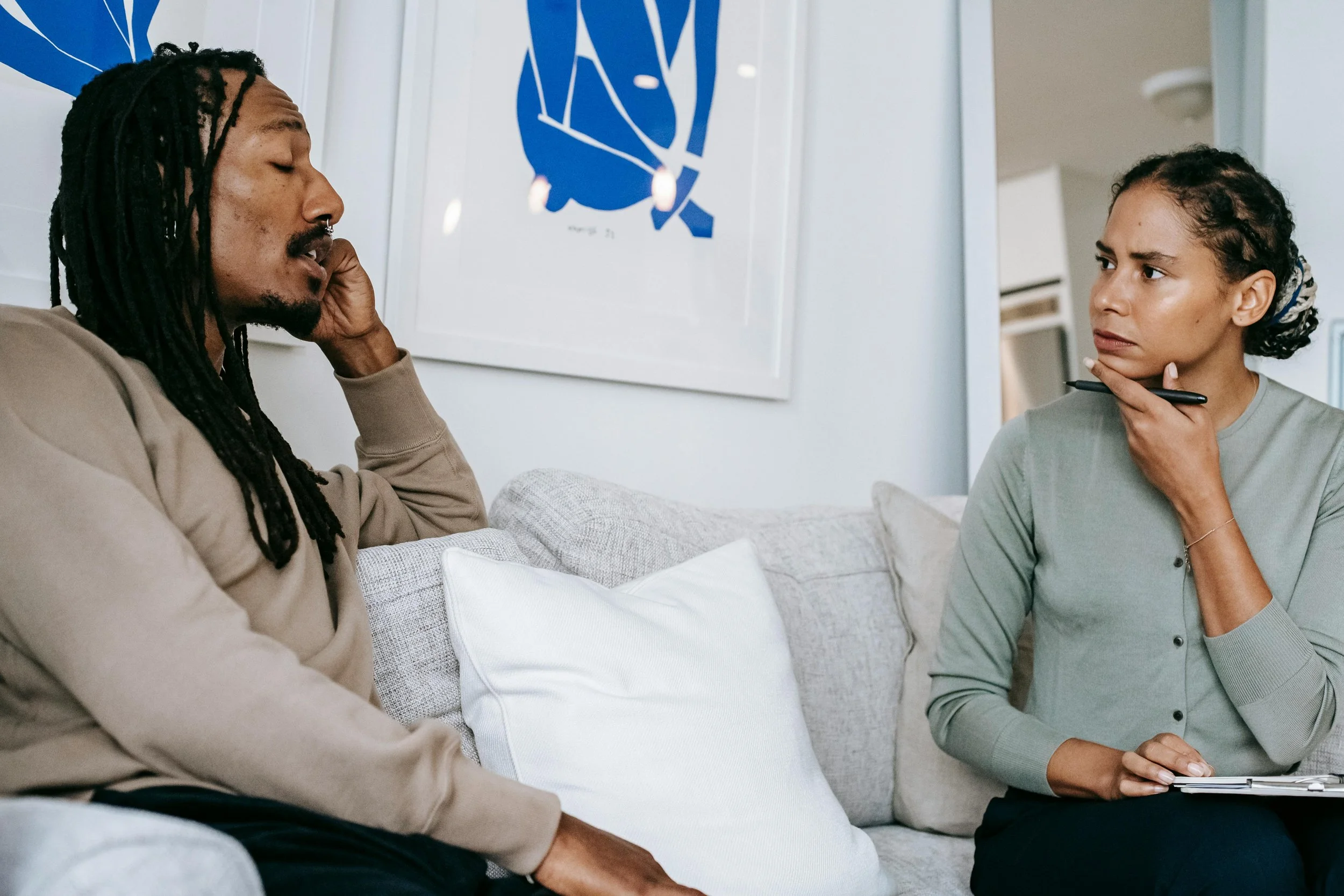Breaking the Silence — How Men of Color Are Redefining Mental Health with Support from Peace & Calm Counseling
In countless communities across the country, men of color are quietly suffering. Not because they lack resilience, but because the world has taught them to equate vulnerability with weakness. The message has been clear: men must be strong, stoic, and self-reliant. Add the complex layers of cultural stigma, racial discrimination, and systemic inequity, and you find a silent mental health crisis that has gone unaddressed for too long.
But this is changing.
At Peace & Calm Counseling, we are committed to being part of that change. We are a safe space for healing, a place where men of color can confront generational trauma, systemic injustice, and personal battles with the support of culturally competent care. We know this isn't just about offering therapy—it’s about reshaping the narrative entirely.
The Legacy of Suppressed Emotion
From a young age, many boys of color are conditioned to suppress emotion. In Black communities, emotional restraint has often been passed down as a survival tactic—a shield against a world that penalizes perceived weakness. In Latinx households, concepts like "machismo" discourage open emotional dialogue. In Asian and South Asian cultures, emotional suffering is often minimized, misunderstood, or seen as a private family matter.
As a result, these young men grow into adults carrying unspoken grief, unresolved trauma, and a deep-seated belief that asking for help makes them less of a man.
This emotional repression doesn't fade—it festers. It leads to disproportionately high rates of depression, anxiety, substance abuse, and suicide among men of color, particularly Black and Indigenous men. And still, many remain hesitant to seek therapy due to stigma and mistrust in the mental health system.
The Mask of Strength
Masculinity, particularly when shaped through a cultural lens, often becomes a mask. Men of color are expected to be providers, protectors, and pillars of their families and communities. But who holds up the pillar when it begins to crack?
The performance of constant strength becomes emotionally exhausting. It creates a dangerous paradox where seeking help is perceived as weakness, yet not seeking help increases suffering. At Peace & Calm Counseling, we aim to disrupt that paradox by honoring the strength it takes to be vulnerable, to speak openly, and to heal.
Systemic Barriers to Healing
The problem isn't just stigma—it's systemic. Mental health services are often inaccessible to communities of color, either due to financial constraints, geographic barriers, or a lack of representation among therapists. Even when therapy is available, many find it difficult to connect with practitioners who don’t understand their cultural context or lived experience.
Imagine opening up about microaggressions at work to someone who minimizes their impact, or trying to explain the emotional toll of generational poverty to someone who sees it as a statistic rather than a lived reality.
This is why culturally competent care matters—and it’s why Peace & Calm Counseling exists.
Our Approach: Therapy Rooted in Cultural Understanding
At Peace & Calm Counseling, we don’t just offer therapy; we offer therapy that fits.
Our team is trained in culturally responsive techniques, trauma-informed care, and narrative therapy designed to honor the lived experiences of our clients. We create a space where men of color can unpack their stories without needing to translate their truth. We listen, we validate, and we co-create paths to healing.
We also understand that the experience of men of color is not monolithic. We work with African American men navigating racial trauma, Afro-Caribbean men juggling bicultural identities, Latino men deconstructing machismo culture, Asian men confronting family expectations, and more.
Community and Connection
Healing is not just individual; it is communal. We support clients in reconnecting with their cultural roots and traditions that promote wellness. Whether that includes family engagement, spiritual rituals, or community-building activities, we help integrate therapy into the broader context of life and identity.
Therapy as a Revolutionary Act
For men of color, going to therapy can feel like an act of rebellion—a radical declaration that you matter, that your pain is valid, and that your healing deserves priority.
Choosing to go to therapy is choosing to stop the cycle. It's choosing to challenge cultural myths that equate silence with strength. It's choosing to create emotional fluency for future generations. It’s choosing to be whole.
At Peace & Calm Counseling, we walk alongside you on this journey. We honor the bravery it takes to step into the unknown, and we celebrate each moment of clarity, connection, and growth that follows.
You Are Not Alone
We see you. We hear you. And we want you to know that you are not alone in your struggle.
Whether you’re new to therapy or returning after a break, we welcome you to begin—or continue—your healing with us. Because healing doesn’t have to be loud to be powerful. Sometimes, it starts with a whisper: I think I need help.
And sometimes, that whisper is the beginning of a powerful, life-changing journey.
Continue Reading


